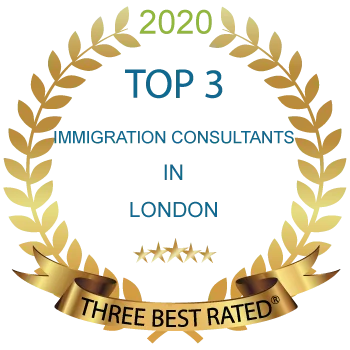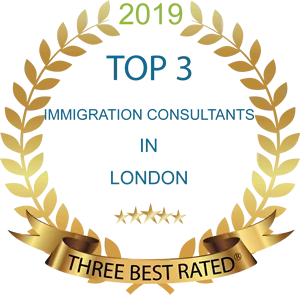UK Sponsor Licence
What Is a UK Sponsorship Licence?
A UK Sponsor Licence is an official authorisation from the Home Office that permits UK employers to sponsor foreign nationals to work or study in the United Kingdom. You'll usually need a sponsor licence to employ someone to work for you from outside the UK. This includes citizens of the EU, Iceland, Liechtenstein, Norway and Switzerland who arrived in the UK after 31 December 2020.
The sponsorship system ensures that only legitimate employers can recruit overseas workers, maintaining the integrity of the UK's immigration system while enabling businesses to access global talent pools.
Key Features of a Sponsor Licence
- Enables organisations to issue Certificates of Sponsorship (CoS) to prospective employees.
- Required for most employment-based visa categories including Skilled Worker, Global Business Mobility, and Temporary Worker routes.
- Valid for four years from the date of issue.
- Subjects licence holders to ongoing compliance duties and monitoring.
Types of Sponsor Licence
The UK operates two main categories of sponsor licences:
Worker Route Sponsor Licence
This licence covers permanent and long-term employment opportunities, including:
- Skilled Worker - For skilled professionals in eligible occupations
- Scale-up - For fast-growing businesses recruiting high-skilled workers
- Global Business Mobility - For multinational companies transferring staff
- Minister of Religion - For religious workers
Temporary Worker Route Sponsor Licence
This covers short-term work assignments, including:
- Charity Worker - For unpaid voluntary work
- Creative Worker - For artists, entertainers, and creative professionals
- Government Authorised Exchange - For approved exchange programmes
- International Agreement - For workers covered by international treaties
- Religious Worker - For temporary religious assignments
- Seasonal Worker - For agricultural and horticultural work
Sponsor Licence Requirements
To obtain a sponsor licence, your organisation must satisfy several key requirements across different areas:
Business Eligibility Requirements
UK Presence and Legal Trading — To be eligible to apply for a Sponsor Licence your organisation must have a UK presence and be operating or trading lawfully in the UK. This means:
- Having a genuine UK business operation
- Holding appropriate business licences and registrations
- Demonstrating active trading or service provision
- Maintaining a physical UK address (not just a PO Box)
Business Structure Eligible organisations include:
- Limited companies
- Partnerships (including LLPs)
- Sole traders
- Registered charities
- Public sector organisations
- Educational institutions
Suitability Requirements
The Home Office assesses whether your organisation is suitable to hold a sponsor licence by examining:
Financial Standing
- Evidence of sufficient funds to meet ongoing obligations
- Demonstration of business sustainability
- Proof of ability to pay sponsored workers appropriately
Compliance History
- Previous immigration compliance record
- Any history of regulatory breaches
- Criminal convictions of key personnel
Business Legitimacy
- Genuine business activities
- Appropriate business premises
- Professional business operations
Genuine Business Need Requirements
You must demonstrate a legitimate need to sponsor overseas workers by showing:
- Resident Labour Market Test - Evidence that suitable settled workers are not available
- Skills shortage - Documentation of specific skill gaps in your workforce
- Business expansion - Plans requiring international expertise
- Specialised roles - Positions requiring unique qualifications or experience
Key Personnel Requirements
For licence applications from 1 January 2025, at least 1 Level 1 User (now known as a 'primary Level 1 User') must be both an employee, director or partner in the business and a 'settled worker'.
Authorising Officer
- Must be a director, partner, or senior employee
- Responsible for overall compliance with sponsor duties
- Cannot delegate this responsibility to others
Key Contact
- Day-to-day contact person with the Home Office
- Handles routine correspondence and queries
- May be the same person as the Authorising Officer
Level 1 Users
- Minimum of two required (including the primary Level 1 User)
- Can assign and withdraw Certificates of Sponsorship
- Must be settled workers (British citizens, EU settled status holders, or permanent residents)
Level 2 Users
- Can view sponsorship information but cannot assign CoS
- Useful for HR personnel who need system access
Sponsorship Licence for UK Employers: The Genuineness Test
The Home Office applies stringent "genuineness tests" to sponsor licence applications:
Genuine Organisation TestThis assesses whether your business is:
- Legitimately operating - Real business activities, not a shell company
- Financially viable - Sufficient resources to sustain operations
- Appropriately staffed - Adequate personnel to fulfil business functions
- Properly established - Genuine business premises and infrastructure
For each sponsored role, you must demonstrate:
- Real job need - Authentic requirement for the position
- Appropriate duties - Job tasks align with the stated role
- Market rate pay - Salary meets minimum requirements and going rates
- Skills shortage - Evidence that settled workers are unavailable
Once licensed, sponsors gain access to the Sponsorship Management System, a secure online portal for:
Certificate Management
- Assigning Certificates of Sponsorship to prospective employees
- Withdrawing unused certificates
- Monitoring certificate usage and validity
Reporting Functions
- Submitting mandatory reports about sponsored workers
- Updating worker information and circumstances
- Notifying the Home Office of significant changes
Compliance Monitoring
- Tracking sponsor duties and deadlines
- Accessing guidance and updates
- Communicating with Home Office officials
Holding a sponsor licence comes with significant ongoing obligations:
Personnel Management
- Right to work checks - Verify worker eligibility before employment
- Document retention - Maintain copies of all relevant documents
- Contact maintenance - Keep worker contact details current
- Role monitoring - Ensure workers perform their sponsored duties
Record Keeping Requirements
Employee Records – Maintain comprehensive records for each sponsored worker, including:
- Personal details and contact information
- Visa and immigration status documentation
- Employment contracts and job descriptions
- Salary and payment records
- Absence and attendance records
Retention Periods
- Keep records for one year after the worker's sponsorship ends
- Ensure records are readily available for Home Office inspection
- Maintain both physical and digital copies where appropriate
Regular Reporting
- Submit Sponsor Management System reports as required
- Provide updates on worker circumstances within specified timeframes
- Report any compliance concerns or issues promptly
Change Notifications: Notify the Home Office within 10 working days of:
- Changes to business structure or ownership
- Key personnel changes
- Changes to business address or contact details
- Significant changes to business activities
Monitoring of Absences
Track and report:
- Unauthorised absences - Workers absent for 10+ consecutive working days
- Annual leave - Ensure leave patterns are reasonable and documented
- Sickness absence - Monitor extended periods of illness
- Study leave - Document any time away for training or education
How to Apply for a Sponsor Licence
The sponsor licence application process involves several key steps:
Initial Assessment- Determine licence type - Worker or Temporary Worker route
- Check eligibility - Ensure you meet all requirements
- Identify key personnel - Designate Authorising Officer and Key Contact
- Gather documentation - Collect all required supporting documents
- Create account - Register on the Home Office sponsor portal
- Complete application - Provide detailed business and personnel information
- Upload documents - Submit all required supporting evidence
- Pay fees - Make payment for application and processing
Applications are dealt with in less than 8 weeks. UKVI may need to visit your business. The process includes:
- Document review - Home Office examines submitted evidence
- Premises visit - Site inspection may be conducted
- Interview process - Key personnel may be interviewed
- Decision notification - Approval or refusal communicated
Sponsor Licence Required Documents
The Home Office requires extensive documentation to support your application:
Business Registration Documents
- Certificate of incorporation or partnership agreement
- VAT registration certificate
- Business registration with Companies House
- Charity registration (if applicable)
Financial Evidence
- Audited accounts for the most recent financial year
- Bank statements for the last 3 months
- Management accounts (if audited accounts unavailable)
- Evidence of adequate insurance coverage
Premises Documentation
- Property ownership or lease agreements
- Business rates documentation
- Utility bills confirming occupancy
- Planning permission (if required)
Personnel Evidence
- CVs and personal statements for key personnel
- Proof of identity and right to work documentation
- Organisational chart showing reporting lines
- Evidence of relevant qualifications or experience
Business Activity Evidence
- Business plan outlining activities and objectives
- Customer contracts or service agreements
- Marketing materials and website information
- Professional accreditations or memberships
Sponsor Licence Fees
Sponsor licence application fees now £574 (small sponsors) and £1,579 (large sponsors). The fee structure depends on your organisation's size:
Small Sponsor Fees
Organisations classified as "small sponsors" are required to pay a sponsor licence fee of £536 An organisation qualifies as small if two of the following apply:
- Annual turnover of £10.2 million or less
- Gross assets of £5.1 million or less
- 50 or fewer employees
Large/Medium Sponsor Fees
Organisations classified as "medium" and "large" are required to pay a sponsor licence fee of £1,476
Additional Costs
- Premium processing - £500 for 10-day decision service
- Certificate of Sponsorship - Certificate of Sponsorship costs rose to £525
- Immigration Skills Charge - Small or charitable sponsors: £364 for the first 12 months, then £182 per 6-month extension. Medium or large sponsors: £1,000 for the first 12 months, then £500 per 6-month
What Are Sponsor Licence Duties?
Once licensed, sponsors must fulfil comprehensive ongoing duties:
Primary Compliance Obligations
- Sponsorship monitoring - Track all sponsored workers continuously
- Accurate record-keeping - Maintain detailed, up-to-date records
- Timely reporting - Submit required reports within deadlines
- Policy compliance - Adhere to all sponsor guidance and requirements
Worker Management Duties
- Pre-employment checks - Verify right to work before employment starts
- Ongoing monitoring - Track worker attendance, performance, and circumstances
- Salary compliance - Ensure minimum salary requirements are met
- Role compliance - Verify workers perform their sponsored duties
Reporting Requirements
- Absence reporting - Notify unexplained absences of 10+ days
- Change reporting - Report worker circumstance changes within 10 days
- Contact maintenance - Keep worker contact details current
- Cessation reporting - Report when sponsorship ends
What If My Sponsor Licence Application Is Refused?
In the year to June 2025, only 56% of sponsor licence applications were approved, meaning nearly 1 in 2 failed or were withdrawn. If your application is refused:
Understanding Refusal ReasonsCommon grounds for refusal include:
- Insufficient evidence of genuine business need
- Failure to demonstrate suitability
- Inadequate key personnel arrangements
- Non-compliance with eligibility criteria
- Administrative review - Challenge the decision if you believe it's incorrect
- Fresh application - Submit a new application addressing refusal reasons
- Legal representation - Seek professional immigration advice
- Business improvements - Address underlying issues before reapplying
- Professional guidance - Engage immigration specialists early
- Thorough preparation - Ensure all requirements are fully met
- Quality documentation - Provide comprehensive, well-organised evidence
- Compliance systems - Establish robust HR and monitoring processes
Sponsor Licence Application Process: Step-by-Step Guide
Follow this detailed roadmap to navigate the application process successfully:
Phase 1: Pre-Application Planning (4-6 weeks)
- Eligibility assessment - Confirm you meet all requirements
- Personnel identification - Designate and brief key individuals
- System development - Establish HR and compliance procedures
- Document collection - Gather all required supporting evidence
- Legal review - Ensure compliance with all relevant regulations
Phase 2: Application Preparation (2-3 weeks)
- Online registration - Create Home Office portal account
- Form completion - Complete all application sections thoroughly
- Document upload - Submit all supporting evidence
- Quality review - Check application for completeness and accuracy
- Fee payment - Process application and any additional fees
Phase 3: Home Office Assessment (6-8 weeks)
- Initial review - Home Office conducts preliminary assessment
- Additional queries - Respond promptly to any information requests
- Premises visit - Facilitate any required site inspections
- Personnel interviews - Support key staff through interview process
- Final assessment - Await decision notification
Phase 3: Home Office Assessment (6-8 weeks)
- Success preparation - Set up Sponsorship Management System access
- Compliance implementation - Activate monitoring and reporting procedures
- Staff training - Ensure all relevant personnel understand their duties
- Process documentation - Record procedures for ongoing compliance
Sponsor Licence Rating System
The Home Office operates a rating system to monitor sponsor performance:
A-Rating (Trusted Sponsor)
- Full sponsorship privileges
- Reduced reporting requirements
- Access to premium services
- Enhanced reputation with Home Office
B-Rating (Acceptable)
- Standard sponsorship privileges
- Normal reporting requirements
- May face additional scrutiny
- Required to demonstrate improvement
Compliance Action
- Formal warning issued
- Enhanced monitoring imposed
- Specific remedial action required
- Risk of licence suspension
Licence Suspension/Revocation
- Immediate cessation of sponsorship rights
- No new Certificate assignments
- Existing sponsored workers may be affected
- Significant reputational and operational impact
Common Pitfalls to Avoid in Sponsor Licence Application
Learning from common mistakes can significantly improve your chances of success:
Documentation Errors
- Incomplete evidence - Failing to provide all required documents
- Poor quality scans - Submitting illegible or unclear copies
- Outdated documents - Using expired or superseded evidence
- Inconsistent information - Contradictory details across documents
Personnel Issues
- Inadequate key personnel - Unsuitable or insufficient designated individuals
- Missing settled status - Key personnel without appropriate immigration status
- Lack of authority - Personnel without genuine business authority
- Insufficient experience - Key individuals lacking relevant expertise
Business Preparation Problems
- Weak business case - Unclear justification for overseas recruitment
- Poor financial evidence - Insufficient demonstration of financial stability
- Inadequate systems - Lack of proper HR and compliance procedures
- Unclear business model - Confusion about actual business activities
Application Process Mistakes
- Rushed preparation - Insufficient time allocated to application preparation
- Missing deadlines - Failure to respond to Home Office queries promptly
- Poor presentation - Disorganised or unclear application materials
- Lack of professional advice - Attempting complex applications without expert guidance







